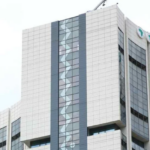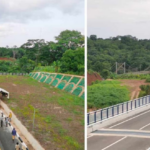
STORY HIGHLIGHTS
- The Central African Republic’s (CAR) economy experienced a standstill in 2022 due to floods and fuel shortages.
- The country faced high inflationary pressures and acute levels of food insecurity, with nearly half the population affected.
- Removing fuel subsidies, excluding kerosene, would have a limited one-time effect on prices but would require a strong mitigation package with a focus on protecting the most vulnerable.
BANGUI, Central African Republic, 27 June 2023 -/African Media Agency(AMA)/-The World Bank issued today a new edition of the Economic Update report for the CAR. The report, titled Central African Republic Economic Update: Reforming Fossil fuel subsidies.
Here are some highlights from the report:
1/ CAR’s economy has stalled in 2022 due to floods and fuel shortages.
After two consecutive years of near stagnation, CAR’s economy experienced a complete standstill in 2022. Floods directly affected 12 out of the country’s 17 prefectures in the second half of 2022. Physical damages were significant, including in housing and transport infrastructure as well as crops. In addition, pre-existing tensions between the government and fuel importers led to limited fuel supply on the formal market and contributed to the paralysis of the economy, especially in the most energy-dependent sectors. The development of a black market prevented a complete collapse of the economy, but low-income households suffered severe hardship due to higher energy prices on the informal market. As a result, real GDP growth settled at zero percent in 2022, much below the average of CEMAC, Sub-Saharan Africa (SSA) and countries affected by fragility conflict and violence.
In 2022, major sectors of activity (e.g., forestry, extractive sector) were severely impacted by climatic shocks and fuel shortages.

2/ GDP Growth could see a rebound in 2023-2024
Provided that the fuel supply in the domestic market improves and the security gains continue, real GDP growth is projected at 3.6% over the period 2023-25. This outlook is driven by anticipated higher international timber prices due to a rebound of global demand. Inflation is expected to stay above the 3% regional convergence criterion in 2023 mostly due to price pressures from imported food and energy, before falling gradually over the medium term.
3/ More than 3.5 million people continue to live in extreme poverty
Poverty is projected to remain high with 71% of the population living with less than $1.9 a day in 2023–25, and food insecurity and limited access to basic public services, especially in remote areas, will remain major concerns. Bold reforms are needed to boost the economy and improve living standards by protecting people through social protection; attracting private investments and promoting trade development; improving fiscal transparency; and attracting
4/Reforming fuel subsidies
The report highlights that fuel subsidies not only represent a significant fiscal burden, but also favor wealthier households and introduce market distortions, driving fuel shortages in the country. In 2022, the sharp rise in international oil prices led to an increase in fuel subsidies, estimated to represent 0.5% of GDP or almost 6% of total domestic revenues in 2022. While fuel subsidies aim to protect consumers’ purchasing power, the analysis shows that it benefits mostly the richest segments of the population, especially groups living in urban areas. It also highlights that a fuel subsidy reform requires a strong mitigation package aimed at providing targeted support to the key affected stakeholders, particularly focusing on minimizing negative externalities and protecting the most vulnerable. Such package would include measures to reinforce social safety nets, increase transparency of public financial management, increase social spending, support strategically affected sectors such as transport, and increase productive structural public investments.
Cost of freezing fuel prices in CEMAC and peer Sub-Saharan African countries (in percent of GDP), 2022.

Distributed by African Media Agency (AMA) on behalf of The World Bank
The post Key Highlights on the Central African Republic Economic Update: Focus on Fuel Subsidies appeared first on African Media Agency.







